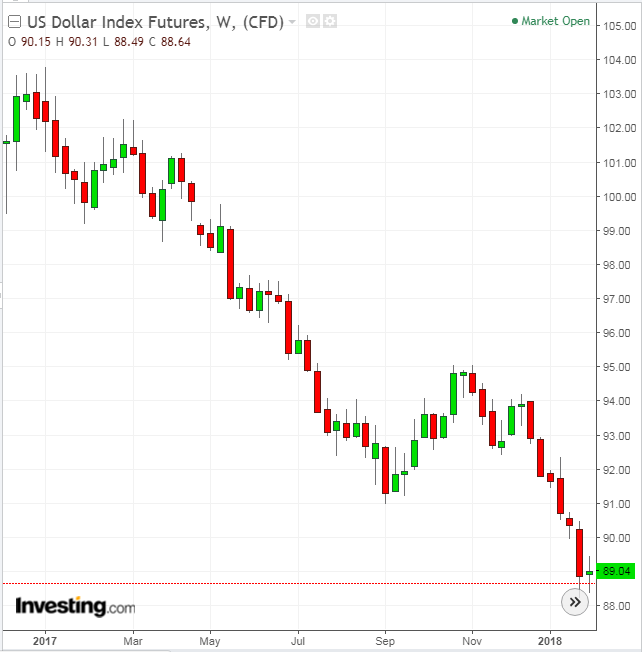by Noreen Burke
As nations look to scale back monetary stimulus without pushing the value of their currency higher, at a time when inflation remains stubbornly low, it appears the stakes have been rising in the long-simmering currency wars. According to the UK's Express, based on recent rhetoric from the Trump administration, "the ECB (European Central Bank) is concerned the US is attempting to exert political influence on exchange rates."
The nature of the forces behind the revival of the currency wars also suggest that they are here to say, says Simon Derrick, chief currency strategist at BNY Mellon. The modern era of ‘currency wars’ arose from the need for central banks and finance ministries, all facing the same challenges of low growth and inflation, to facilitate emergence from the 2008 crisis, he explains.
Derrick notes that markets have focused on recent comments from European Central Bank Council member Ewald Nowotny, who raised concerns that the US is attempting to weaken the value of the US dollar versus other major currencies. "We in the ECB are certainly concerned about attempts by the United States to politically influence the exchange rate," Nowotny said. "That was a theme of economic discussions in Davos, where the ECB addressed this, and it will certainly be a theme at the upcoming G20 summit." The next G20 summit will be held in Argentina in March.
Nowotny's comments, made during an interview this past weekend, echoed those he made earlier this month when he accused the US of deliberately putting downward pressure on the dollar. He also suggested that the European Union should band together to serve as a ‘counterweight’ to the Trump administration.
Nowotny’s comments were widely seen as a response to US Treasury Secretary Steve Mnuchin’s remarks about the dollar on January 24. Speaking at the World Economic Forum in Davos, Switzerland, Mnuchin said a weaker dollar is good for the US as it relates to trade. A weaker dollar tends to benefit US exporters by making their goods more competitive overseas. It also helps keep a lid on inflation, which in turn helps keep interest rates low.

The US Dollar Index, which measures the greenback’s strength against a basket of six major currencies, has fallen around 2% this year and declined 10% in 2017. “The market, where prices reflect all known information, cannot discard the fact that officials are fully aware of the impact their remarks can have,” Derrick said. “In terms of its impact, passive observation may be indistinguishable from a concerted attempt to move a currency – generally, investors are not inclined to draw distinctions.”
Derrick points out that while nations have agreed to abide by G7 and G8 stipulations prioritizing ‘domestic policy objectives’, it is inconceivable that this can be done without one nation or other suffering the burden of currency appreciation. The degree of difficulty facing policymakers in the present cycle has been that much higher given that their projections for higher inflation have been routinely thwarted, he noted.
While many G20 officials have therefore questioned whether the ‘ends’—appreciable levels of inflation—can justify the ‘means’ of distortive levels of interest rates, their hands have been tied by the risks of policy error. But thanks to a stronger and sustained phase of global economic growth, the cautious status quo that has characterized monetary policies across the world for so long has started to shift. However, this doesn’t mean to suggest that the stakes are any less significant, far from it and not least due to a high incidence of debt globally.
Derrick said that if the dollar continues to defy the yield support commensurate with policy normalization, then markets might expect to see growing tensions manifest themselves into the jawboning or the subtle maneuverings by additional governments. All of which is a fairly diplomatic way of emphasizing that a currency war could indeed be playing out.
PIMCO's Joachim Fels perhaps puts it more succinctly:
The dollar’s...decline against other major currencies in 2017 and the comment... by Treasury Secretary Mnuchin...in Davos that a weak dollar is good for the US in the short term all but confirm that the US administration is engaged in what we have called a “cold currency war” – and it is winning.
